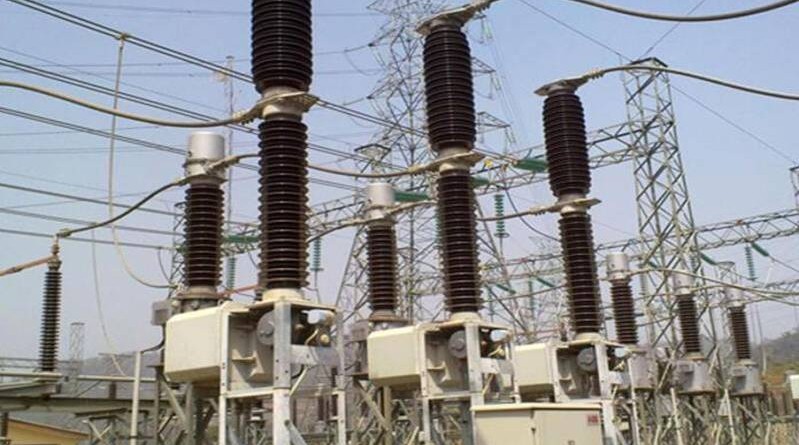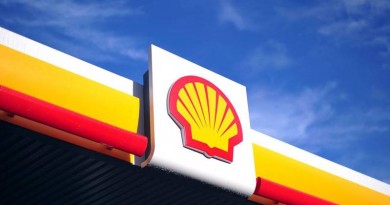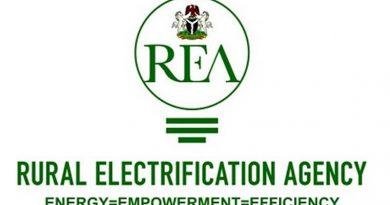Federal Government Approves Hike in Electricity Tariff – Chimaobi Agwu
The Federal Government through acting through its Nigerian Electricity Regulatory Commission has approved electricity tariff increase for six Distribution Companies (DisCos) effective in January 2022. The affected Discos are Port Harcourt Electricity Distribution Company (PHEDC); Jos Electricity Distribution Company (JEDC); Kano Electricity Distribution Company (KEDC); Kaduna Electricity Distribution Company (KEDC); Ikeja Electricity Distribution Company (IKEDC) and Ibadan Electricity Distribution Company (IBEDC).
The document ORDER NO: NERC/299/2021 titled: the multi-year tariff Order 2021 was dated 29th December, 2021 and signed jointly by the Commission’s Chairman, Sanusi Garba and Vice Chairman, Musiliu Musiliu Oseni. The increase took effect in the month of 2022 February, three months ago.
According to the Commission, the approval was pursuant to the Extraordinary Tariff Review Application and Performance Improvement Plan (PIP) filed by each of the DisCos. It said the MYTO 2022 Order restates the DisCos approved 5-year Capital Expenditure (CAPEX) and relevant assumptions applied to forecast revenue requirements and applicable tariffs for the period 2021 to 2026 in line with the MYTO Methodology and Regulations on procedures for Electricity tariff reviews in the industry.
https://tribuneonlineng.com/nerc-approves-new-electricity-tariff/
NERC said some of the indices considered for the tariff increase include gas price, inflation, exchange rate, US inflation rate, and available generation capacity and saith that the indices shall be reviewed every six months to update the tariffs with changes in the indices as applicable in line with the multi-year tariff order (MYTO).
It added that these indices shall be reviewed every six months to update the tariffs with changes in the indices as applicable in line with the multi-year tariff order (MYTO).
For Abuja Electricity Distribution Company, non-Maximum Demand power users in Band A had their tariff increased from N51.75/kWh to N56.28/kWh from February to December 2022. The non-MD consumers in Band B had their tariff increased from N49.72/kWh to N54.13kWh, while the non-MD power users in Bands C and D had their tariff raised from N45.65/kWh to N50.65/kWh, and N29.70/kWh to N33.20/kWh respectively. For the non-MD customers of AEDC in Band E, their tariff was raised from N29.38/kWh to N32.88/kWh.
NERC explained that customers in Band A were those receiving a minimum of 20 hours of electricity daily, while those in Bands B, C, D and E include power users receiving 16 hours, 12 hours, 8 hours, and 4 hours of power supply daily.
Aside from non-MD customers, there were other categories of maximum demand power users classified as MD1 and MD2, but most of the tariffs of these categories of power users were also raised.
For Eko Electricity Distribution Company, there was a marginal decrease in the amount payable by non-MD consumers in Band A, those in Band B had their tariff unchanged, while others in Bands C, D and E had their tariffs hiked. The non-MD customers in Band A had their tariff reduced from N56.08/kWh in January to N55.55/kWh from February to December, while non-MD customers in Band B had theirs unchanged at N51.81/kWh. For non-MD customers in Band C, D and E, their tariffs were raised from N42.44/kWh to N47.44/kWh, N28.63/kWh to N31.75/kWh, and N28.63/kWh to N31.71/kWh.
For Port Harcourt Electricity Disco, the approved end-user tariffs for all the bands for non-MD customers from A to E were hiked by the NERC. Non-MD Band A customers of PHED had their tariff raised from N57.16/kWh in January to N60.67/kWh from February to December 2022, while the tariff of non-MD Band B customers was increased from N56.79/kWh to N59.64/kWh. Non-MD customers in Bands C, D and E had their tariffs raised from N50.15/kWh to N55.15/kWh, N35.31/kWh to N38.81/kWh, and N35.08/kWh to N38.58/kWh, respectively. Customers in MD1 and MD2 in the various bands had their tariffs also raised by the NERC.
Commenting on the tariff hike, former NERC chairman, Sam Amadi, said Nigeria would continue on electricity tariff hikes for a long time without improved supply, adding that there are many gaps in the electricity network, which have not been addressed.
According to Sam Amadi, “these frailties have been worsened by failures of the government. We have also seen a lax policy and regulatory environment. In spite of these failures, investors are demanding cost-reflective tariffs. The international financial institutions are also putting pressure on the government to remove subsidies in the sector, which arises because of revenue shortfalls,”.
He further noted that consumers may continue to bear the brunt of the compounding inefficiencies of the sector, adding that there is no indication for significant service improvement until the country “have a more efficient policy and regulatory environment and interventions.”
On his part, the pioneer Managing Director of the Nigerian Bulk Electricity Trading Company Plc (NBET), Rumundaka Wonodi, said while prevailing economic realities may cause tariffs to go up, it remained of serious concern that the increase is not delivering the service levels that are contemplated in service-based tariffs.
“Many of the clusters hardly experience the supply hours in whichever tariff band they have been placed. Imagine that in the past few months, the supply to the grid has been dismal, leading to reduced hours of supply to all bands of tariff consumers, even for band A, yet, the tariff remained the same. The DisCos rightly claim that they are not responsible for the recent decrease in supply, but, that is not for the consumers to pick up the bill because, at the same time, consumers have to make up with self-generation at a time diesel prices are through the roof,” Wonodi said.
According to him, even before the latest supply squeeze, many consumers in the tariff bands had pointed out that supply had not been consistent with their respective tariff bands.
However, NERC said the objectives of the tariff hike were to reflect the impact of changes in the projected minor review variables for the period January to December 2021 for the determination of Cost-Reflective Tariffs, adjust the Discos’ capital expenditure for the years 2021 to 2026 in consideration of the approved PIP.
It said it was to ensure sustained improvement in reliability and quality of supply in line with Discos’ capital expenditures proposal and PIP commitment. The commissioned further stated that the order would ensure that tariffs payable by customers were commensurate and aligned with the quality and availability of power supply committed to customer clusters by Discos.
The NERC further said the tariff order would ensure that prices charged by Discos were fair to customers and were sufficient to allow Discos to fully recover the efficient cost of operation, including a reasonable return on the capital invested in the business, pursuant to the provisions of sections 32(d) and 76 2(a) of Electric Power Sector Reform Act. And that the order would provide appropriate incentives to ensure continuous improvement in the performance of the Transmission Company of Nigeria Plc in reducing its network technical losses, among others.




